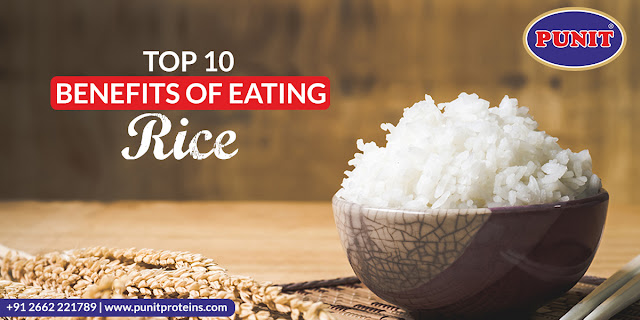Types of Pulses Used in Routine Life
Pulses are dry peas, beans, lentils, and chickpeas that can be consumed. They are classified as members of the legume family; however, the term "pulse" refers more particularly to those types of legumes that are cultivated, harvested, and consumed for their dry seeds.
Pulses can be found in staple meals and cuisines from
all over the world, including hummus, which is made from chickpeas in the
Mediterranean, a classic full English breakfast, which is made from baked navy
beans, and dal, which is made from the best quality lentils supplied by the best pulse supplier company in Gujarat - Punit Proteins Pvt. Ltd.
Importance of Pulses consumption:
Pulses are highly nutrient-dense when compared to other types of plant meals. They have a high quantity of protein, are an excellent source of fibre (there is mounting evidence that dietary fibre has a beneficial function in the overall health of the digestive tract), and are especially abundant in folate.
For instance, one cup of chickpeas contains more than
10x folate content as compared to one cup of cooked kale, while one serving of
liver contains nearly the same amount of folate as one cup of chickpeas.
Because folate is a nutrient that is essential to the prevention of neural tube
abnormalities in newborns and because it is preferable to obtain folate through
food rather than supplements, this is excellent news for women who are trying
to conceive or who are already pregnant. Pulses are a wonderful way to get your
protein fixed. This indicates that they may be of utmost significance for
individuals who do not obtain protein from the consumption of meat, fish, or
dairy items.
RED LENTILS:
Because it contains a significant amount of protein,
Masoor Dal is beneficial to a healthy lifestyle. Masoor dal is beneficial for
individuals who are afflicted with ailments that are caused by blood that is
not pure and helps to maintain the excretory system clean.
KABULI CHANA:
●
Kabuli Chana, also known as Garbanzo Beans, are related to
Bengal Gram in a very close way. Chickpeas are huge seeds that have a smoother
coat as well as are lighter in colour than other types of legume seeds. It is
often known as garbanzo beans and is regarded as a valuable source of protein.
Another term for it is Ceci beans.
●
Chickpeas are beneficial to our health because they include a
wide variety of nutritious components that are essential for the development of
our bodies in the correct manner. It contains several critical vitamins &
minerals. Because chickpeas include a high volume of both, soluble as well as
insoluble dietary fibres, they are excellent for lowering cholesterol levels
and halting a sharp spike in blood sugar levels that can occur shortly after
consuming a meal. Chickpeas are rich in both types of fibre. Chickpeas provide
a moderate amount of calories and hardly any fat at all.
TOOR DAL:
●
Pigeon Pea is also called Toor Dal and Arhar Dal in India
Split. Pigeon Pea originates from Africa. Yellow-colored Split Pigeon Pea, also
known as Toor or Arhar Dal, is a legume that is frequently cooked. Toor dal,
also known as split pigeon peas, is one of the most popular pulses in India.
This is because it is an excellent source of protein for the Indian diet, which
is predominantly vegetarian.
●
Pigeon Pea is effective in treating coughs, the effects of
poisoning, gas problems, acidity, stomach pain, and piles. The consumption of
Toor Dal manufactured by Punit Proteins Pvt. Ltd. - one of the leading pulses
manufacturers in Gujarat, is highly
beneficial in the treatment of internal organ swelling is beneficial.
RED KIDNEY BEANS:
●
In India, the Red Kidney Bean is typically referred to by the
name Rajma. The dish known as rajma is typically consumed on a Sunday afternoon
when one is feeling particularly lethargic or exhausted. Kidney beans, which
are a significant source of protein, offer a complete complement of all eight
of the essential amino acids.
●
These beans include a variety of naturally occurring
antioxidants, many of which are beneficial to one's health in various ways. The
best Indian grains and pulses such
as Red Kidney Beans contain dietary fibre, which helps lower blood cholesterol
levels as well as overall cholesterol levels in the body.
URAD DAL:
● Urad, often referred to as Black Gram, is a pulse crop that originated in India, where it has a long history of cultivation dating back to prehistoric times. Black gramme is well-known for the calming and refreshing effects that it may provide. Nervine tonic, as well as Aphrodisiac, are two of their many benefits. Diabetic individuals should try to incorporate more urad dal into their diets.



Comments
Post a Comment